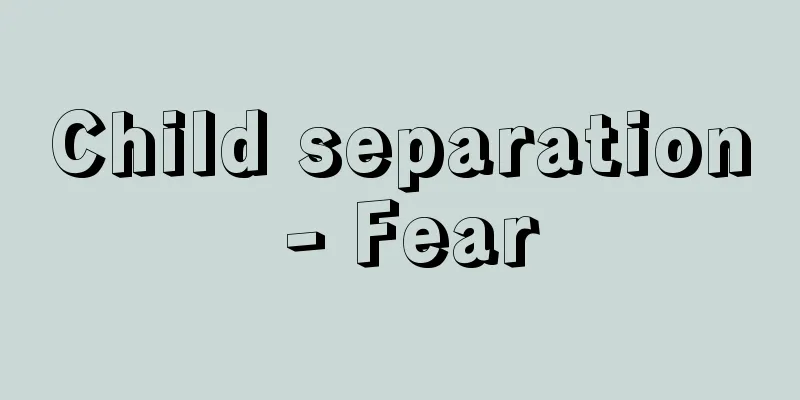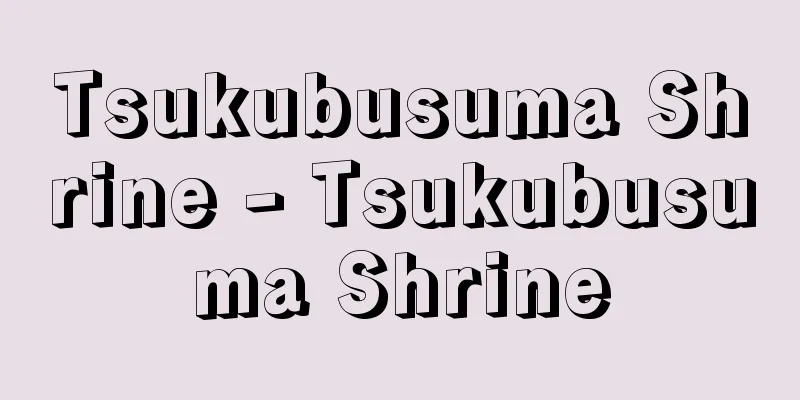Child separation - Fear

|
Rakugo. A large-scale work divided into three parts, it is said to have been written by the master of the late Edo period, Shunputei Ryushi I. The first volume contains independent stories, "The Strong Meal Buyer and the Watering Can Buyer," and the second volume contains "A Child is a Bond" (not included in the middle volume). Kumagoro, a carpenter, gets drunk at a funeral and takes the "okowa" (steamed rice) served at the funeral to Yoshiwara to play with the head of a junk dealer (Kudan) (part 1). When Kumagoro comes home in the morning, he tells her about his relationship with a prostitute, which causes his wife to take their child, Kamekichi, and leave the house. Kumagoro lets the prostitute into his home, but they end up breaking up (part 2). Feeling remorse, Kumagoro works hard and three years pass. One day he meets Kamekichi and gives him some pocket money without his mother knowing. When his mother sees him with the money and nearly hits him with a mallet, Kamekichi confesses, and the next day the three are reunited and get back together (below). The punchline is, "It's only because of this child that we can be together again. Children really are the glue that bonds a couple together," and, "Haha, no wonder I hit him over the head with the mallet yesterday." San'yutei Encho later adapted the story so that the wife runs out, leaving the child behind, and San'yutei Enma II brought this to Osaka, and so the alternate name, "Girls' Parting," has remained in Kamigata Rakugo to this day. [Kazuo Sekiyama] Source: Shogakukan Encyclopedia Nipponica About Encyclopedia Nipponica Information | Legend |
|
落語。上、中、下に分かれた大作で、幕末の名手初代春風亭柳枝(しゅんぷうていりゅうし)の作といわれる。上に『強飯(こわめし)の女郎(じょうろ)買い』、下に『子は鎹(かすがい)』の独立演題がある(中の巻にはない)。大工の熊五郎が葬式(とむらい)酒に酔い、葬式で出された「おこわ」を持って、屑屋(くずや)の長公と吉原で遊んでしまう(上)。朝帰りをした熊五郎が、女郎との仲を話したため、女房は子供の亀吉を連れて家を出てしまい、熊五郎は女郎を家に入れるが、結局は別れる(中)。後悔した熊五郎は気を入れて働き、3年たつ。ある日亀吉に会い、母親に内緒で小遣いの金をやる。その金を母親に見とがめられ、玄翁(げんのう)(木槌(きづち))でぶたれそうになった亀吉が白状し、翌日、3人は再会して元の鞘(さや)に収まる(下)。サゲは「お前さんと元のようになれるのも、この子があればこそ。ほんとうに子供は夫婦の鎹ですね」「はは、道理できのう玄翁で頭をぶつといった」。のち三遊亭円朝が、女房が子供を残して出て行くように改作、これを2代目三遊亭円馬が大阪に伝えたため、上方(かみがた)落語にはこの別名『女の子別れ』が今日まで残されている。 [関山和夫] 出典 小学館 日本大百科全書(ニッポニカ)日本大百科全書(ニッポニカ)について 情報 | 凡例 |
<<: Kowakidani [Hot Springs] - Kowakidani
Recommend
Reticulated silicate - amijo keisanen
...This is the reason why mica and other material...
Cambodian - Kambojjaago
It is the language of the Khmer people, mainly in...
Khiva (English spelling)
A city in the Khorezm region of western Uzbekistan...
Rokunohe [town] - Rokunohe
A town in Kamikita district, eastern Aomori prefec...
legal culture
...refers to the study of law through anthropolog...
Color proofing
⇒Color calibration Source: About Shogakukan Digita...
CBS - CBS
CBS Corporation is an abbreviation for the Americ...
Nine Chapters of the Law
The basic legal code of the Han dynasty, created ...
Meiji Shrine
Located in Yoyogi Jingu-cho, Shibuya-ku, Tokyo, i...
Signoria
...A de facto monarchy in late medieval Italian c...
Akasaka Tenmacho
…Odenmacho and Minamidenmacho were responsible fo...
All Readings - All Readings
...However, while these magazines are the core of...
Code of Hammurapi - Code of Hammurapi
This is a cuneiform law issued by King Hammurapi t...
Baroque drama - Baroque drama
The term "Baroque drama" is often used i...
Papaver setigerum (English name) Papaversetigerum
…[Masao Yamashita]. … *Some of the terminology th...





![Samos [island] - Samos](/upload/images/67cbaf38342ad.webp)



